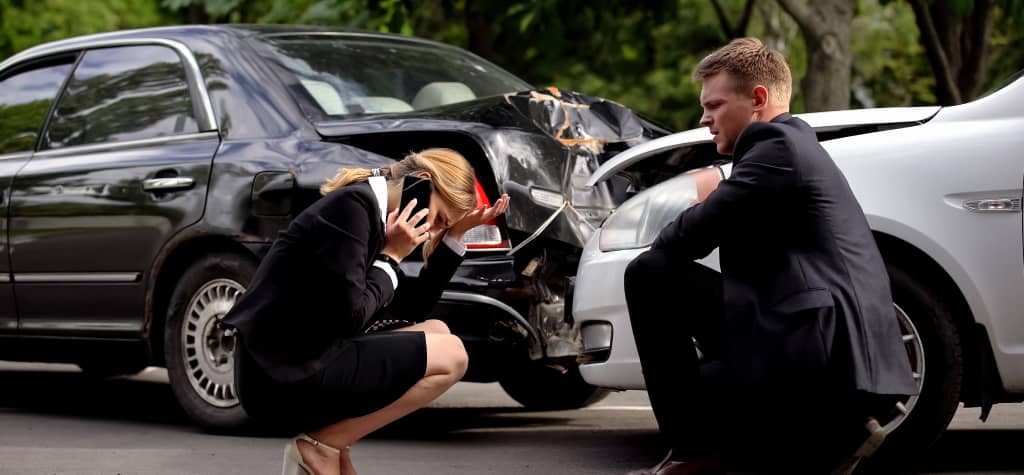No one wants to think about a car accident, but if one happens, it’s important to know what to do next and how to navigate insurance. After a car accident, your police report, which is different than a crash report, can be one of the most important tools for protecting your rights — especially when insurance companies disagree about what happened. Whether you’re filing a claim, disputing fault, or challenging a low settlement offer, the details in your police report can help verify the facts and keep your claim on track throughout the car accident insurance claim process.
Why the Police Report Matters
First, let’s talk about why a police report is so important. Insurance companies base their initial decisions largely on documentation. A police report is an official, third-party document created shortly after the crash. The importance of a police report for insurance purposes cannot be overstated, as it plays a critical role in determining liability and influencing insurance claims and legal outcomes. The report includes many key details, such as:
- The date, time, and location of the accident
- Names, contact information, and insurance details for all drivers
- Statements from drivers, passengers, and witnesses
- The officer’s narrative of what happened
- Diagrams of the crash scene and vehicle positions
- Any citations or violations issued
This objective record makes it harder for an insurer to dismiss or potentially distort what happened. When you face a police report insurance dispute, these details can provide powerful evidence to support your version of events.
Read More: Why Are Police Reports Important After a Car Accident?
How to Get Your Police Report
Most Colorado law enforcement agencies allow you to request a copy of your report online or by mail. You’ll need the report number or the date and location of the crash, plus the involved drivers’ names.
Once you have the report, take your time and review it carefully. Look for any factual errors, missing details, or inconsistencies. If something’s incorrect, you can usually request an amendment or supplemental statement through the responding police department.

Using Your Police Report for an Insurance Claim
Do you have to have a police report to file an insurance claim in Colorado? The answer is no. However, it’s highly recommended to have one, as it strengthens your claim by providing an impartial, official account of the incident. When you submit your car accident insurance claim, include a copy of the police report as part of your documentation. The report can:
- Establish fault: If the officer cited another driver for a violation (like failure to yield or distracted driving), that supports your claim that they were at fault.
- Confirm the sequence of events: The officer’s description and diagrams help clarify how the crash occurred, which insurers rely on when determining liability.
- Support injury claims: Notes about visible injuries or emergency medical response can link your condition to the crash.
- Corroborate your statement: If your version of events matches the police narrative, it adds credibility to your claim.
A police report can be a critical line of defense against insurance companies, but so can legal support. A personal injury attorney can use this documentation to push back against insurer arguments or attempt to undervalue your claim.
When Insurance Companies Disagree
It’s not uncommon for insurers to dispute liability — especially in cases with conflicting statements or unclear evidence. If your insurer or the other driver’s insurer is denying coverage or minimizing your damages, here’s how to use the police report effectively:
- Reference the officer’s findings: Point to the officer’s narrative, diagrams, or citations that support your claim. Insurers are more likely to take a police report seriously than a driver’s statement alone.
- Highlight witness statements: If the police report includes witness observations that align with your version of events, emphasize those in your response or appeal.
- Use the report to identify missing information: Sometimes, the report reveals gaps that need further investigation, like nearby businesses with security cameras or additional witnesses.
- Consult a personal injury attorney: If the dispute continues, a lawyer can submit the report and supporting evidence in a formal insurance appeal or, if necessary, a personal injury claim. Legal professionals know how to use the police report strategically to counter biased or incomplete insurance investigations.

How to Ensure You’re Treated Fairly by Insurance
Even with a strong police report, insurance companies may still try to downplay your injuries or reduce your payout. Resolving insurance disputes often requires persistence and proper documentation. To protect yourself, follow these precautionary steps:
- Keep copies of all reports, medical records, and correspondence
- Follow your doctor’s treatment plan and document all related expenses
- Avoid recorded statements without legal guidance
- Don’t accept an early settlement until you understand the full extent of your injuries and damages
A knowledgeable attorney can compare the police report to your medical evidence and financial losses to ensure your compensation reflects your damages.
Protect Your Rights With a Police Report
When a car accident leads to insurance disputes, the police report can be your strongest ally. It documents the facts, supports your credibility, and helps counter attempts to shift blame.
If you’re struggling with a police report insurance dispute or believe an insurer is treating you unfairly, don’t navigate it alone. Request a copy of the police report right away and consider speaking with a qualified attorney to protect your rights.
